The Fair Work Commission’s Expert Panel for annual wage reviews has recently released its Annual Wage Review for 2022-23. This article provides an overview of the implications for employers.
The outcome of the review is as follows:
- The National Minimum Wage (NMW) will be $882.80 per week, up from $812.60 per week, or $23.23 per hour, up from $21.38 per hour. This represents an 8.6% increase.
- Modern award minimum wage rates will increase by 5.75%. These changes will come into effect from the first full pay period after July 1, 2023.
The Fair Work Commission has decided to align the rate of increase for the NMW with the increase in minimum wage rates for modern awards, which is 5.75%.
Additionally, the Commission has chosen not to align the NMW with the C14 rate in the Manufacturing and Associated Industries and Occupations Award 2020 anymore. The C14 rate was originally intended as a transitional entry rate for new employees and was deemed inadequate as a safety net for employees.
Instead, the NMW will now be aligned with the higher C13 classification wage rate. This change means that the 5.75% increase applies to a higher base rate, resulting in an effective increase of 8.6% for the NMW.
Reasons for the increase The Expert Panel downplayed the significance of the 8.6% rise to the NMW, noting that it only applies to approximately 0.7% of all Australian employees. However, the 5.75% increase in modern award minimum wages represents a slight increase compared to the previous year’s rise of 4.6%.
The Panel attributes this increase to the additional financial pressures caused by rising living costs in the past year, which have put households under stress.
Nevertheless, the Panel acknowledged that the 5.75% increase in modern award minimum wages would not fully maintain their real value or offset the erosion of real wages due to inflation. However, given the current economic circumstances characterized by low unemployment and high inflation, this increase was deemed as the most justifiable measure.
The Panel expressed optimism that it would be possible to restore the real value of award minimum wages once the nation returns to a lower inflationary environment.
Impact on employers Approximately one in five Australian employees are paid based on minimum wage rates set by modern awards. As a result of the Panel’s decision, employers who pay their employees according to minimum wage rates, whether determined by the NMW, a modern award, or another industrial instrument, must increase their employees’ pay in the first pay period on or after July 1, 2023.
Employers who pay their employees under an industrial instrument, such as an enterprise agreement, should review the rates to ensure compliance with or exceed the applicable minimum wage rates.
Employers who already pay their employees above the minimum wage rates through set-off clauses or annualized wage arrangements may be able to absorb the increases without making any changes. However, it is advisable to review and carefully consider these arrangements. If you have any questions regarding how these changes apply to your organization, we recommend reaching out to a member of our Employment & Workplace Relations team for assistance.



